The Chinese call December "lap" because the word "lap" originates from the word for meat. They like to preserve meat during the winter to eat throughout the year. Meat preservation is popular in December, which is why the Chinese call it "lap month." We often see that during the Lunar New Year, Chinese people in Cholon eat lap duck or lap pork, not... braised pork. The Vietnamese word for "thap month" also comes from the two words "lap month," it's just that the Vietnamese mispronounced "lap" as "chap."
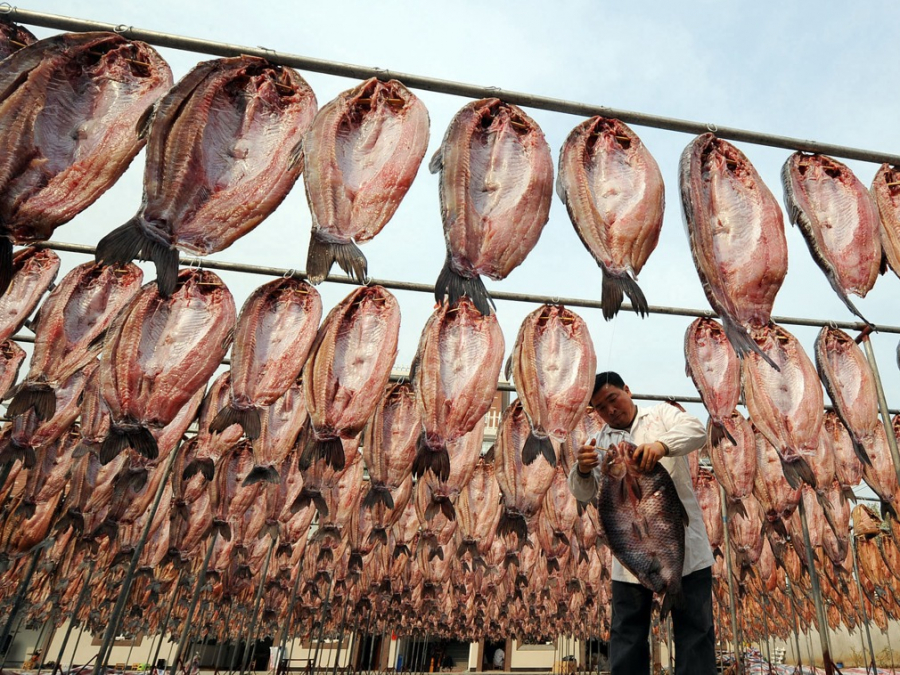
Every Lunar New Year, locals traditionally make dried fish. The Chinese believe that eating fish during the New Year brings wealth and prosperity. The image shows a man drying fish in Hangzhou.
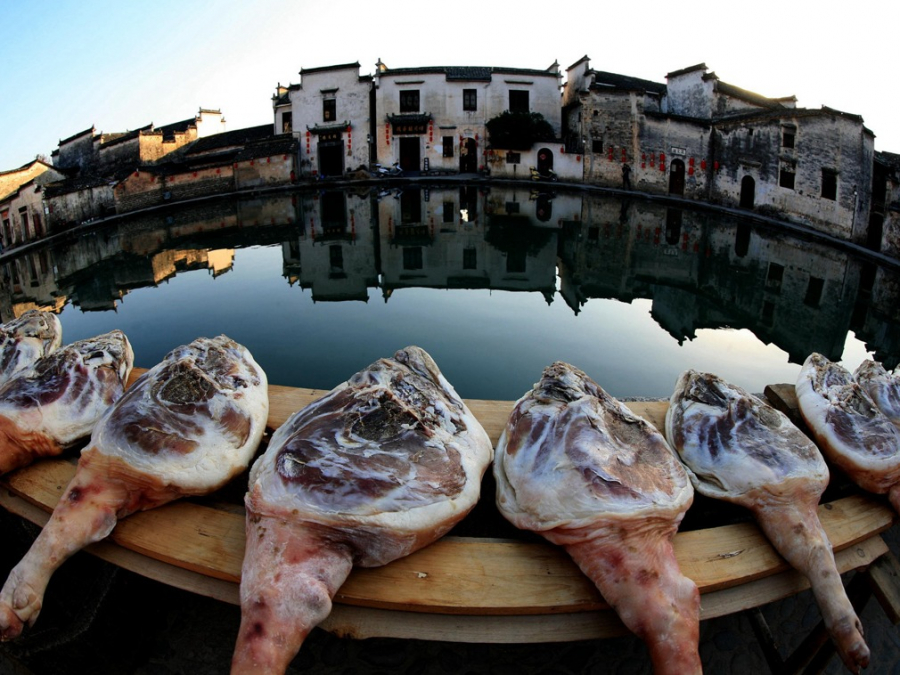
People in Huizhou, Anhui Province, China, dry chicken meat on bamboo racks in the sun in preparation for the Lunar New Year. This is a tradition that the people of Huizhou are very proud of.
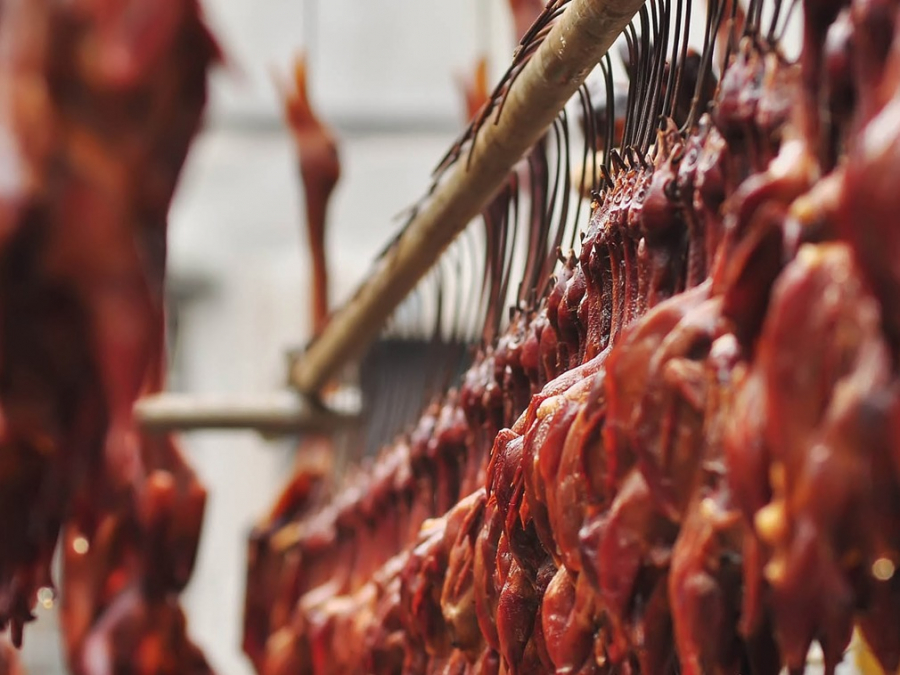
Rows of marinated chicken, fish, and sausages are sold in abundance in Shaoxing City, Zhejiang Province.
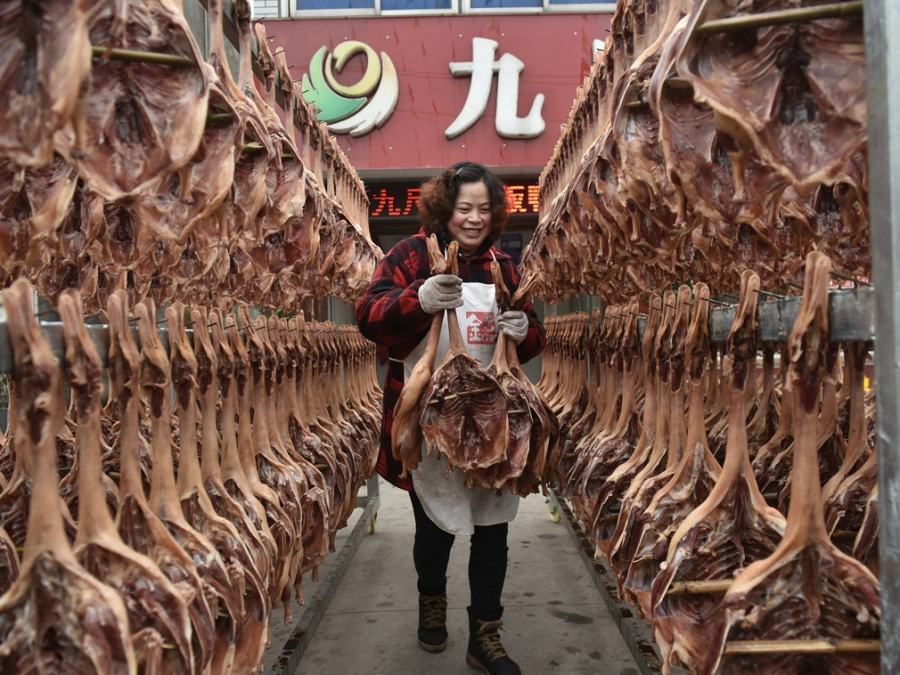
A shop owner selling dried duck in Pengde Town, Chengdu, Sichuan Province. This area is famous for its duck dishes prepared in various ways.
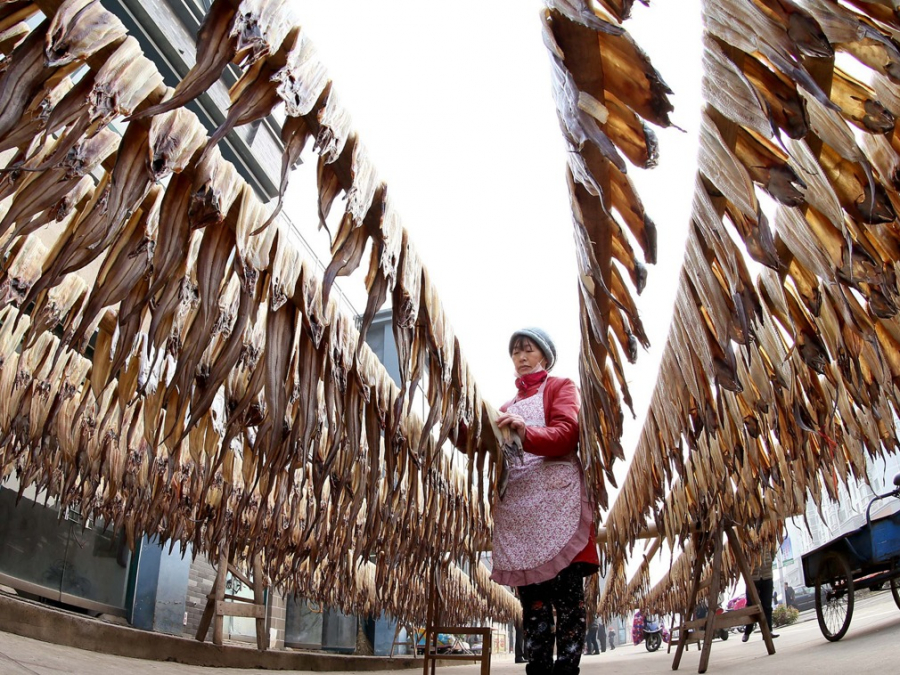
A woman is busy inspecting dried fish in a fishing village in Haizhou District, Lianyungang, Jiangsu Province.
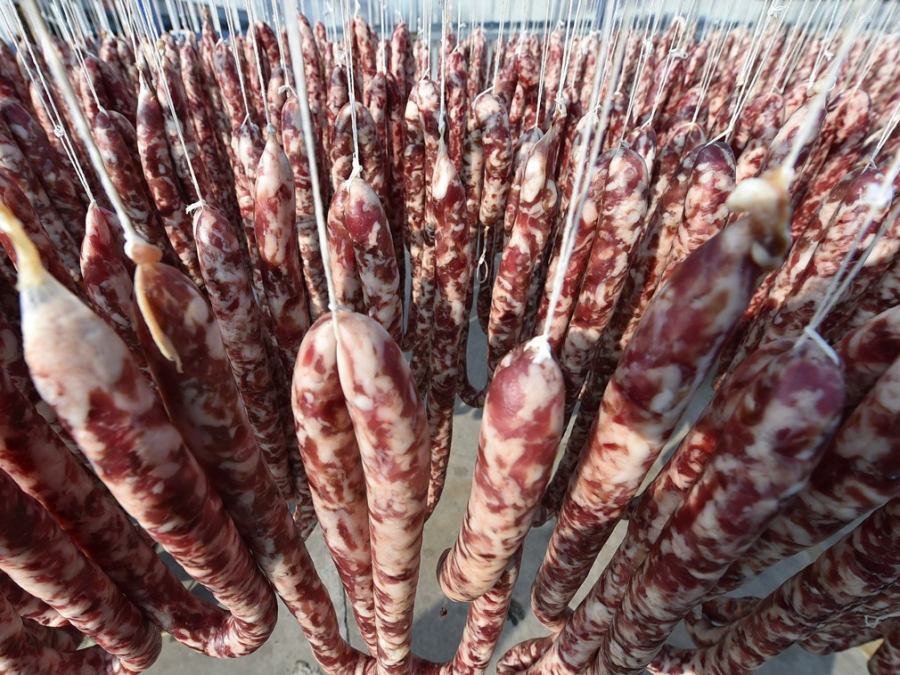
Images of strings of sausages being dried in the sun since December in Hefei City, China.
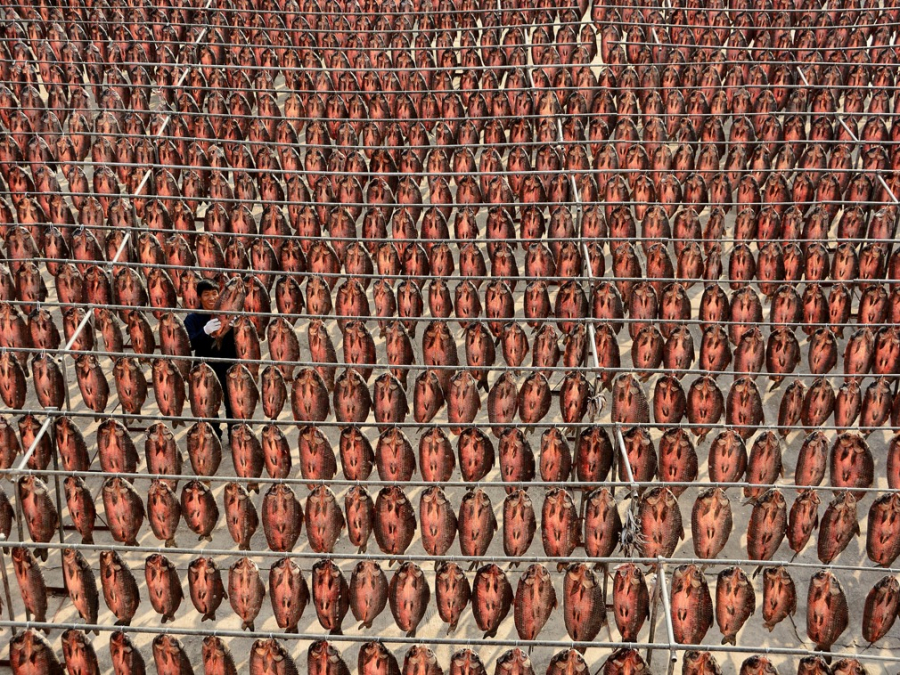
On average, more than 20,000 fish are dried in Hangzhou, Zhejiang province, before the Lunar New Year.
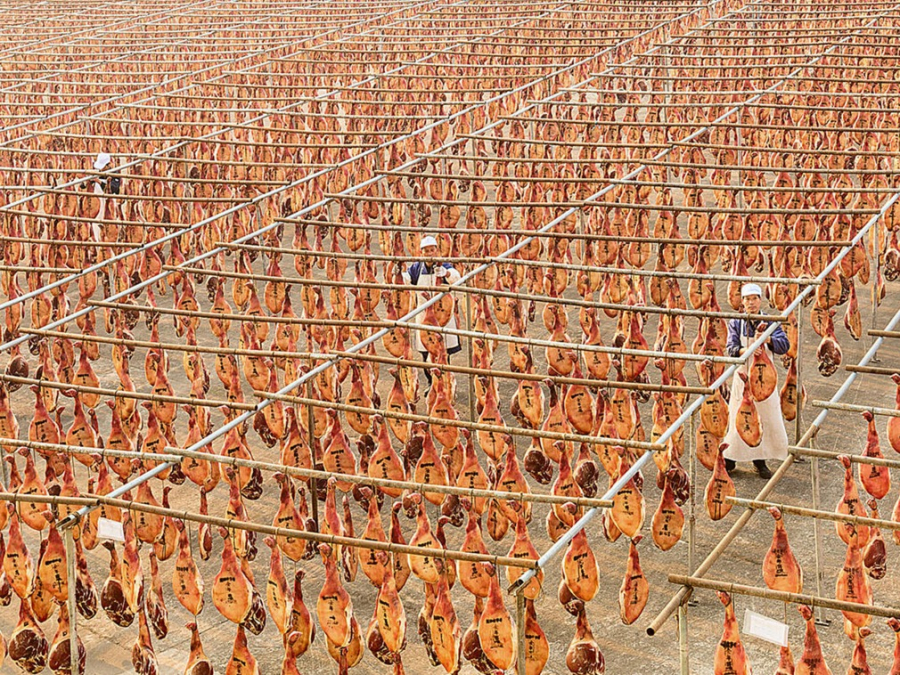
This image shows the famous Kim Hoa smoked ham production facility in Zhejiang Province. Kim Hoa smoked ham is very different from Western smoked ham. When smoked, the sliced meat retains its bright red color and a very distinct layer of fat, making it suitable for eating as is or for use in stews.
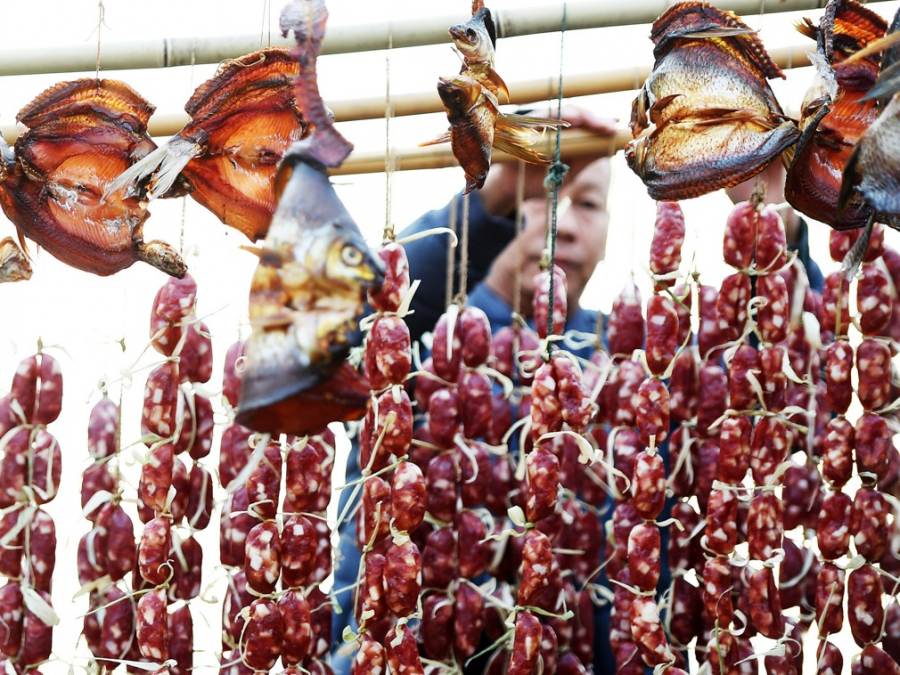
Cantonese-style smoked meat is hung from the rooftops.
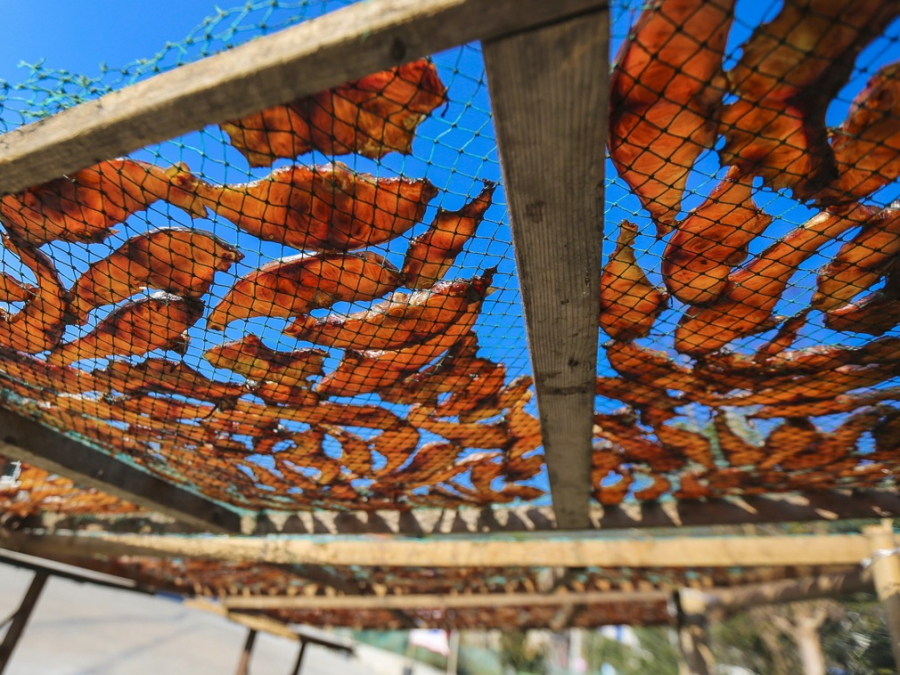
The fish is sliced and dried. Photo taken in Ningbo City, Guangdong Province.
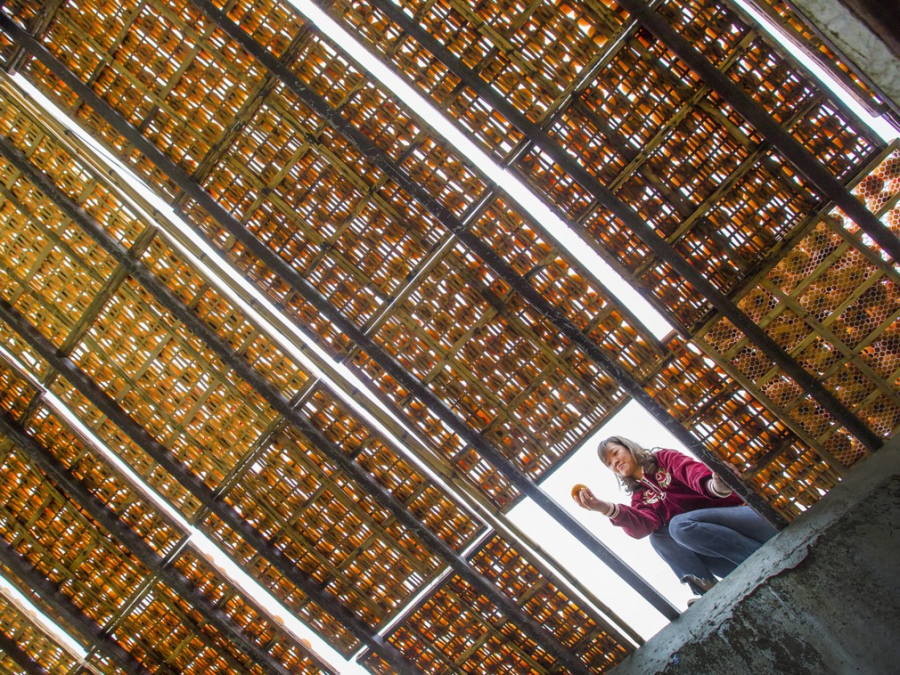
This is the largest dried persimmon factory in Fuzhou City, Fujian Province. It can produce up to 200,000 kilograms of dried persimmons during the winter season alone.
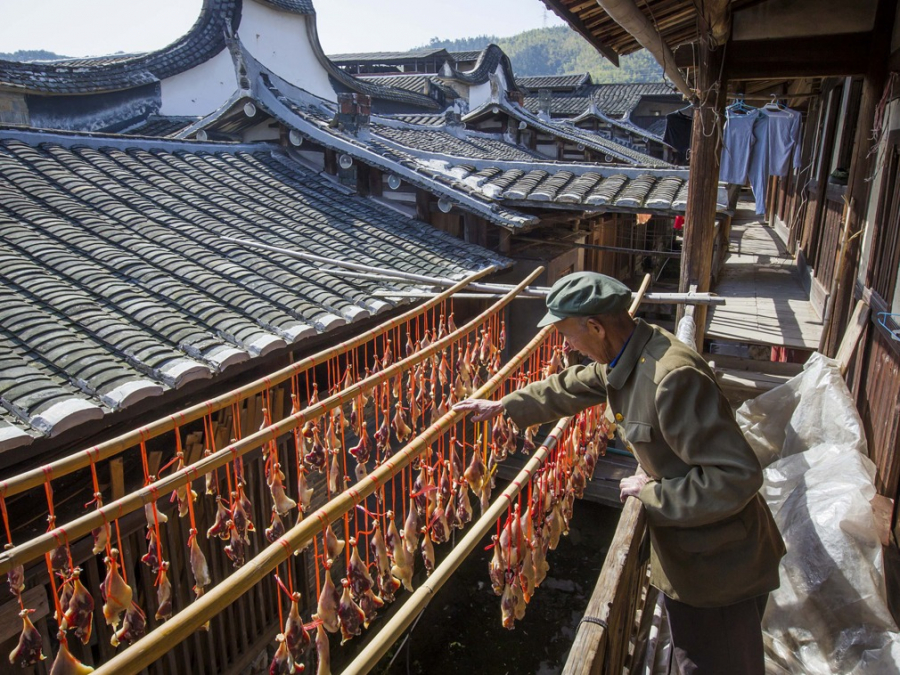
Locals inspect dried salted duck meat. Photo taken in Fujian Province.
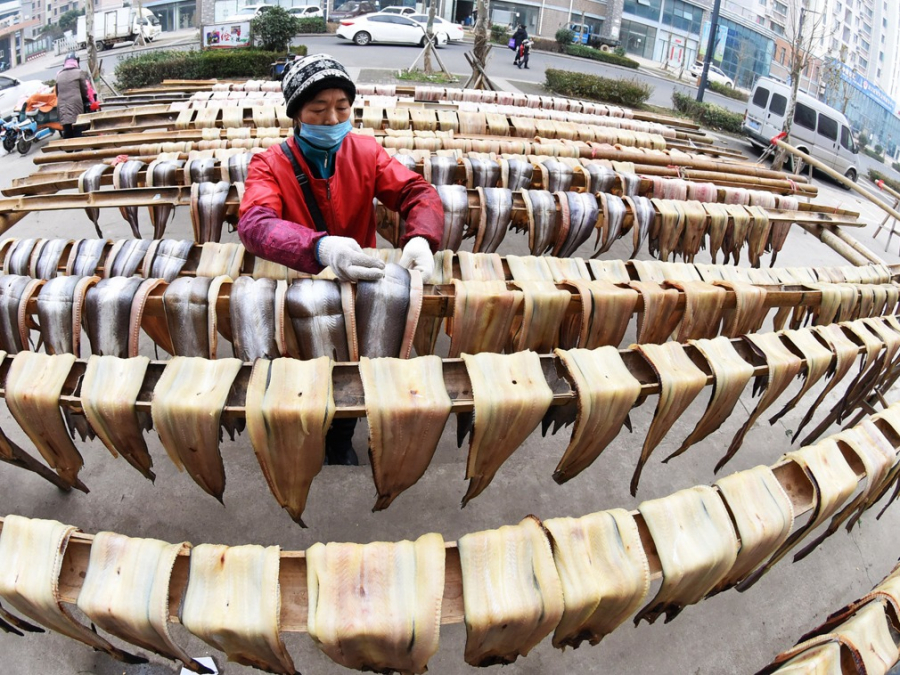

 VI
VI EN
EN
































